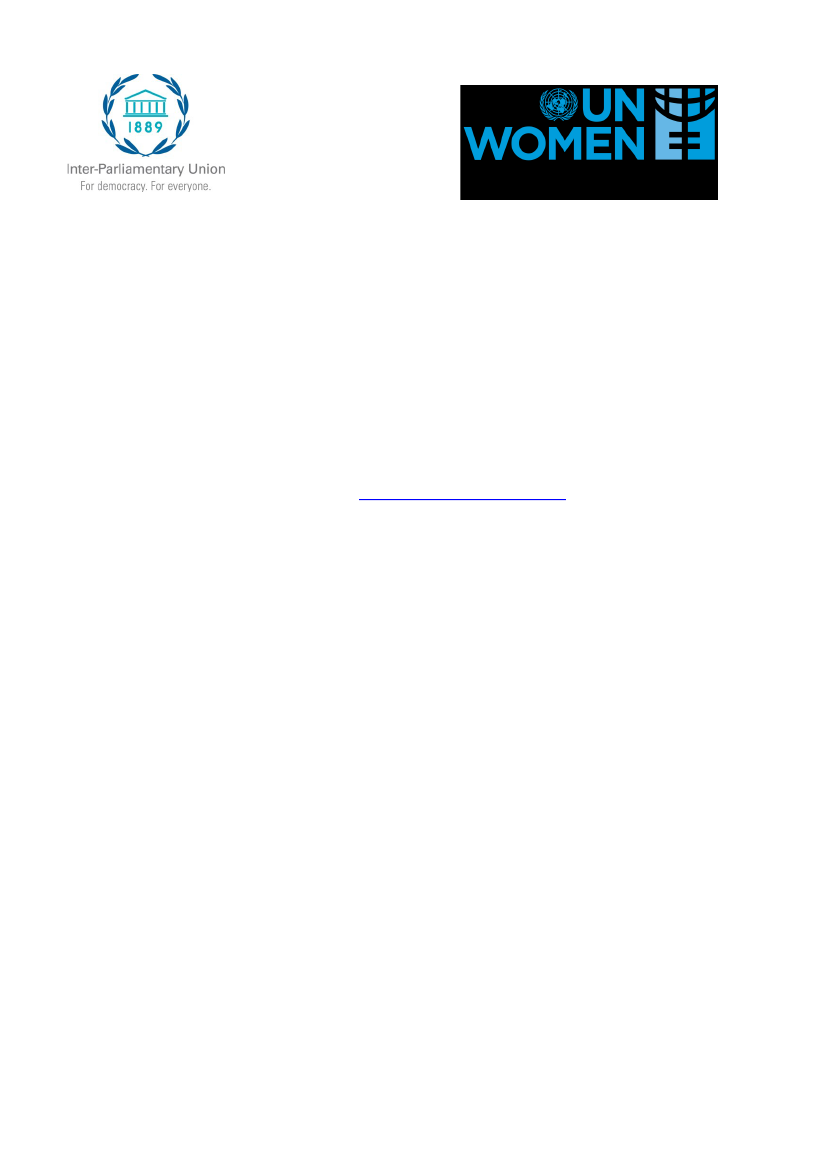
News Release
Political leadership roles in 2025: Men continue to dominate
Geneva/New York,
Embargoed until 09:00 ET /14:00 CET on Tuesday 11 March
New data from the Inter-Parliamentary Union (IPU) and UN Women reveals limited progress in achieving
gender equality in political leadership at the start of 2025, the year which marks the 30th anniversary of
the Beijing Declaration and Platform for Action, the landmark UN framework which set out the roadmap
for gender equality and women’s rights.
According to the 2025 edition of the
IPU-UN Women
Women in Politics
map, men outnumber women by
more than three times in executive and legislative positions. The map presents the latest rankings of
women in executive positions and national parliaments as of 1 January 2025.
While the proportion of women in parliament has increased fractionally by 0.3 percentage points to
27.2% compared to a year ago, in government positions it has declined by 0.4 percentage points.
IPU President Tulia Ackson said: “The
glacial pace of progress in women's parliamentary representation,
even after a year of significant elections, is alarming. The global disparity highlights a systemic failure to
advance gender equality in politics in some parts of the world. It's high time for decisive action to shatter
these barriers and ensure women's voices are equally represented in politics worldwide. The health of
our democracies depends on it."
Martin Chungong, IPU Secretary General, said:
"The lack of progress in achieving gender equality in
political leadership serves as a sobering call to action. Accelerating progress requires the active
participation and support of men. It is our collective responsibility to break down barriers and ensure that
women's voices are equally represented in leadership roles, fostering a more inclusive and robust
democracy for all.”
Sima Bahous, Executive Director of UN Women, stated:
“Thirty years after the Beijing Declaration, the
promise of gender equality in political leadership remains unfulfilled. Progress is not just slow
—
it is
backsliding. We cannot accept a world where half the population is systematically excluded from
decision-making. We know the solutions: quotas, electoral reforms, and the political will to dismantle
systemic barriers. The time for half-measures is over
—
it is time for governments to act now to ensure
women have an equal seat at every table where power is exercised.”
Women leading countries remain the exception
Women hold top State positions in just 25 countries. Europe remains the region with the highest number
of women-led countries (12).
Although 2024 saw historic firsts
—
including the first directly elected women Presidents in Mexico,
Namibia and North Macedonia
—
106 countries have still never had a woman leader.
Women’s representation among Cabinet Ministers declines